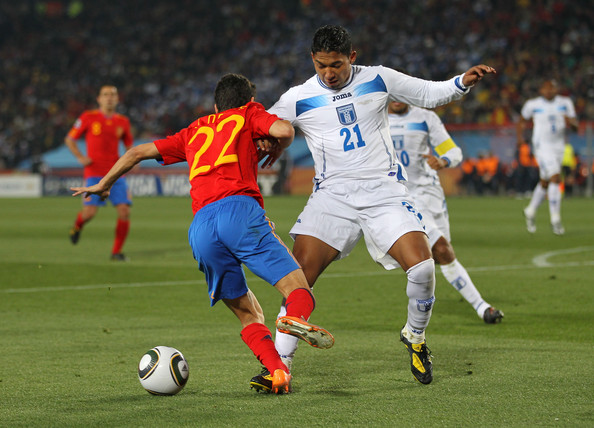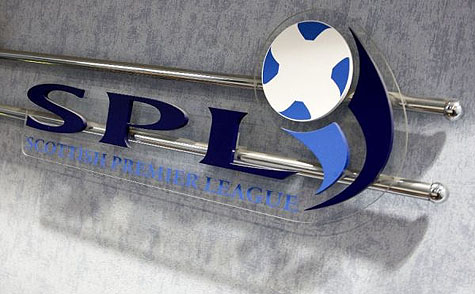The ‘Offensive Behaviour at Football & Threatening Communications (Scotland) Bill’ has been proposed to the Scottish Parliament and is intended to come into force before the new Scottish football season starts on the 23rd July.
It has been put forward as a direct response to recent issues affecting Scottish football and is intended to cover types of behaviour and activity not adequately covered by ‘Breach of the Peace’. Specifically, it is intended to cover sectarian and other offensive behaviours and threatening communications and will give courts the power to imprison offenders for up to a maximum of five years.
The Bill aims to clarify existing criminal law in this area and therefore introduces two new offences –
(1) Offensive Behaviour: this covers sectarian and other offensive behaviour, including chanting and gesturing, related to football, that is likely to cause or incite public disorder; this includes offensive behaviour towards others because of their religious beliefs, colour, race or ethnic origins, sexual orientation or disabilities.
(2) Threatening Communications: this will cover threats of serious harm (including threats over the internet) and will criminalise threats inciting religious hatred (including implied threats); it will not cover peaceful preaching, the right to criticise or comment on other religious or non-religious beliefs, even in harsh terms, and will not criminalise jokes or satire about religious or non-religious beliefs
The need for such a Bill to be introduced was raised as a priority at the recent Football Summit, chaired by Alex Salmond and attended by Strathclyde Police and football clubs. Whilst it was recognised that the problem of sectarian and other offensive behaviour runs deep in Scottish society, it was felt that the new legislation would at least help to tackle the issues directly as they emerge in relation to football.
The Scottish Government aims to pass this Bill through Parliament before the beginning of the new season, but this means it will not be properly scrutinised prior to its approval as law and as such it is already giving rise to more questions than it answers. In fact, it is already giving rise to what sound like ‘off the cuff’ and ‘on the back-foot’ responses to straightforward questions, such as: “Would singing ‘God save The Queen’, or ‘making the sign of the cross’, count as ‘offensive behaviour’ under the new legislation?”
There are two main concerns. First, would the new legislation be workable, would it meet its objectives? Second, and more importantly, given that the legislation would only appear to tackle very specific forms of offensive behaviour in very specific contexts, the Bill does nothing to tackle the wider problems and issues that give rise to the behaviour in the first place and would appear to allow one piece of offensive behaviour to be punishable in one context, relating to football, whilst leaving that same piece of offensive behaviour untouched in another, non-football, context.
Consider this: an individual happens to go to a football match and he feels that his religious beliefs have been openly attacked and ridiculed by the sectarian chanting around him, to the extent that he could be provoked into some form of retaliation; under the proposed new legislation, the perpetrators of this behaviour would be guilty of a criminal act. Consider now that the same individual’s religious beliefs are openly attacked as he walks down the street with his family in a quite unrelated situation, but again he still feels provoked into some form of retaliation. Why would the same form of sectarian behaviour, with the same outcome, be deemed a criminal act in one context but not in another because it is not football related?
Consider this: an individual feels that the gestures made by another individual or group of individuals where offensive to his religious beliefs whilst he was at a football match, to the extent that the individual reacted angrily and violently towards the perpetrator of the gestures. Now, the proposed legislation ought to deem this incident punishable, but what if the individuals responsible for making the gestures claimed that the gestures were not intended to be ‘offensive’ in any way and that they were simply behaving in a manner that was expressive of their own religious beliefs and views, or that the offended person was just being over-sensitive? Would the behaviour no longer be punishable? Would the vagueness of ‘offensive’ allow such cases to slip through the net?
It also seems ridiculous that the new law could be enforced with respect to one or two individuals guilty of engaging in sectarian behaviour likely to incite a riot, yet when the behaviour is repeated en-masse at a football match, enforcement is unlikely to be as vigorous. Police may move in to arrest a small number of people in the stand, but it is highly unlikely that they would move in to arrest tens of thousands at this same match and in this same stand – so it seems that the same sectarian behaviour would go unpunished, provided there were enough people engaging in it at the same time. Find enough people to commit a crime and the crime goes unpunished, it seems.
Furthermore, where mass participation events have been properly planned in advance, through the relevant authorities, as is the case with religious marches and parades (of any form), it seems that this legislation would not have any relevance. Yet such events can be extremely volatile and give rise to all sorts of sectarian and other offensive behaviours.
Finally, consider this: the proposed legislation would seem to leave it open for people who may find some perverse comfort or satisfaction in attributing an interpretation to the gestures or behaviour of other people, which they patently did not intend. It would seem possible for an individual to say that he was offended to the point of retaliation by the entirely innocent behaviour of another, simply by imposing his own ‘sectarian interpretation’ on the behaviour and attempting to magnify it within a potentially volatile context.
For example, certain football players may make certain gestures during matches, which they believe to be entirely innocent and expressive of their religious beliefs; whilst other people may deliberately look for, and latch onto, such gestures, in order to find the types of behaviour that could potentially ‘fit’ the ‘offensive’ definition if it were interpreted in a certain way. And this would be simply to satisfy their own destructive and volatile tendencies.
It would be easy to go on ad infinitum. But my final thought is this: introducing new legislation to deal with sectarian and other offensive behaviour at football matches is a very small step in the right direction, but it still leaves the massive task of dealing with sectarianism in general. Legislation won’t stop, let alone eradicate sectarian behaviour, any more than legislation stops or eradicates other criminal activities; and in this respect we may have to admit that sectarianism could well be a persistent blight on our inclusive, tolerant, open and multi-cultural society.




